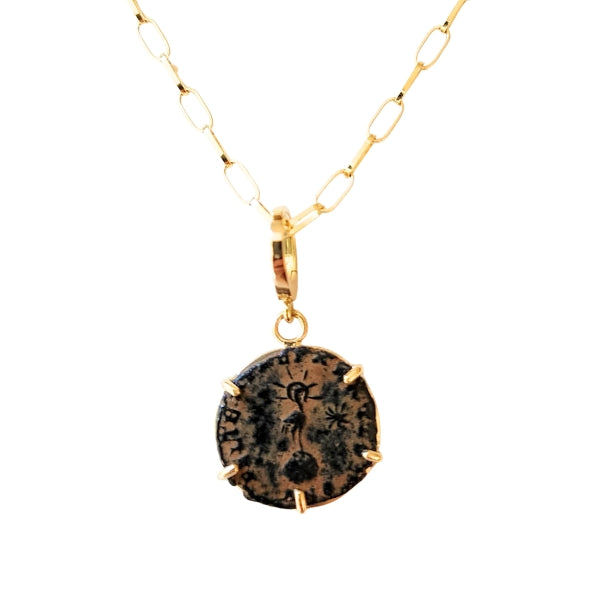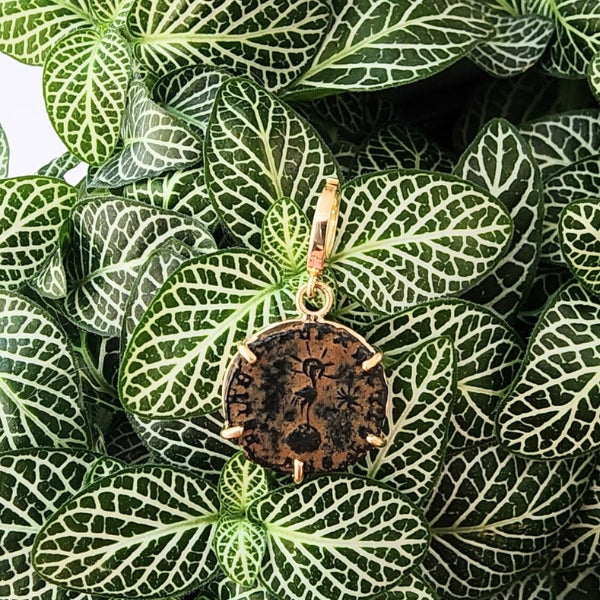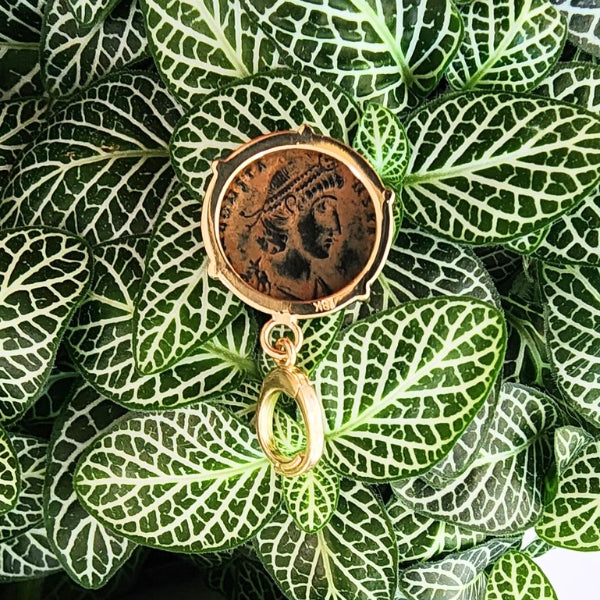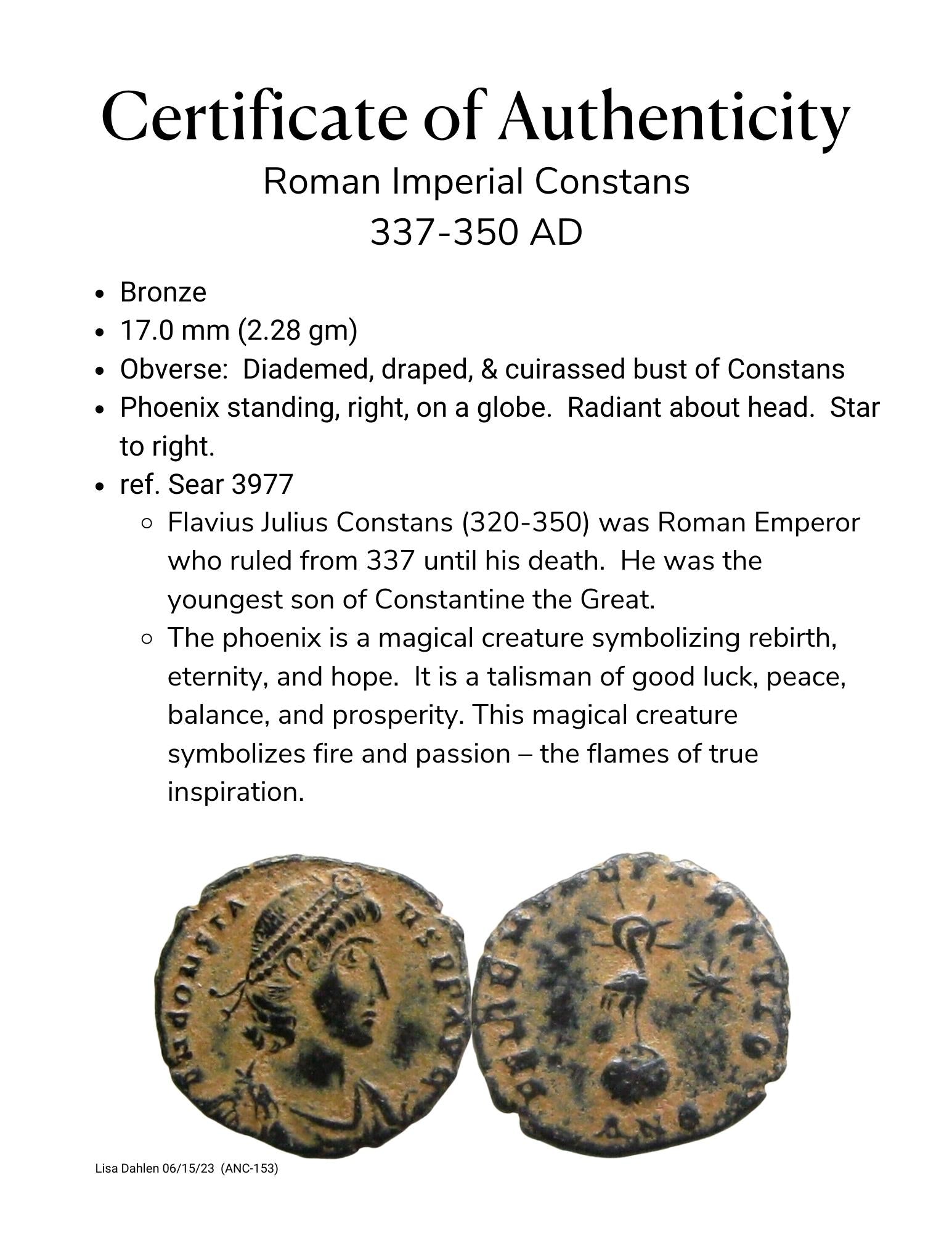



Roman Imperial Phoenix on Globe 337-350 AD (153)
Description
A Phoenix stands on a globe with the sun's rays emanating behind its head on this ancient Roman Imperial bronze coin.
A Phoenix talisman represents hope and renewal.
Size and Materials
Size: 17mm.
Hand-fabricated 18kt recycled gold mount.
One of a kind with a Certificate of Authenticity.
Chain not included; available separately. See Chains
Story
Dated: 337-350 AD
Phoenix represents rebirth, magic, renewal, safety, transformation, permanence, inventiveness, and the sacredness of life.
Constans ruled as Roman Emperor from 337 to 350 AD, initially as a co-emperor of Italy, Africa, and Illyricum alongside his brothers Constantine II, Britain, Gaul, and Spain, and Constantius II, Asia Minor, Syria, and Egypt, until their deaths left him as the sole ruler of the Western Roman Empire.
A desert patina is formed in a very dry desert climate. The tan areas are lightly cemented dust and desert sand. It has a lovely aesthetic appeal. Skillful cleaning of the coin to remove the cemented dust, leaving just enough to create dramatic highlights that emphasize the beauty of the artwork.
Choose options




Roman Imperial Phoenix on Globe 337-350 AD (153)
Sale price$2,250.00
Description
A Phoenix stands on a globe with the sun's rays emanating behind its head on this ancient Roman Imperial bronze coin.
A Phoenix talisman represents hope and renewal.
Size and Materials
Size: 17mm.
Hand-fabricated 18kt recycled gold mount.
One of a kind with a Certificate of Authenticity.
Chain not included; available separately. See Chains
Story
Dated: 337-350 AD
Phoenix represents rebirth, magic, renewal, safety, transformation, permanence, inventiveness, and the sacredness of life.
Constans ruled as Roman Emperor from 337 to 350 AD, initially as a co-emperor of Italy, Africa, and Illyricum alongside his brothers Constantine II, Britain, Gaul, and Spain, and Constantius II, Asia Minor, Syria, and Egypt, until their deaths left him as the sole ruler of the Western Roman Empire.
A desert patina is formed in a very dry desert climate. The tan areas are lightly cemented dust and desert sand. It has a lovely aesthetic appeal. Skillful cleaning of the coin to remove the cemented dust, leaving just enough to create dramatic highlights that emphasize the beauty of the artwork.
